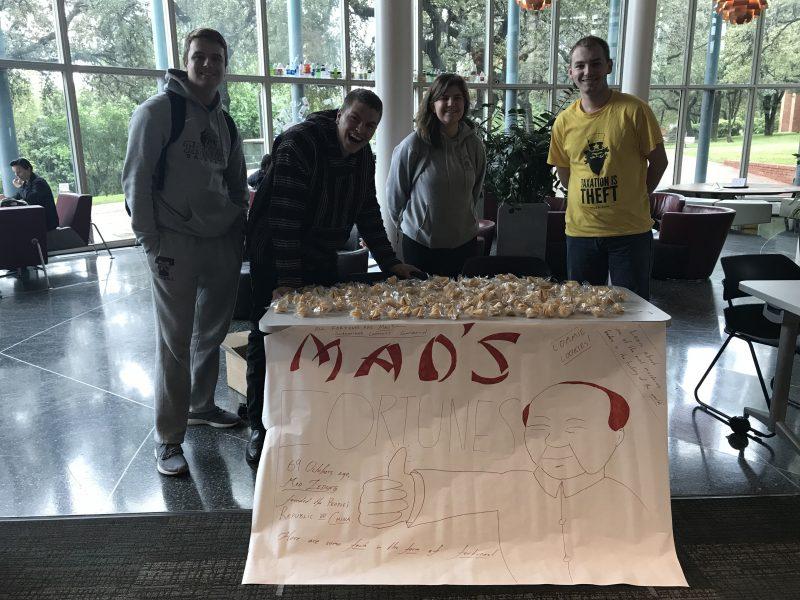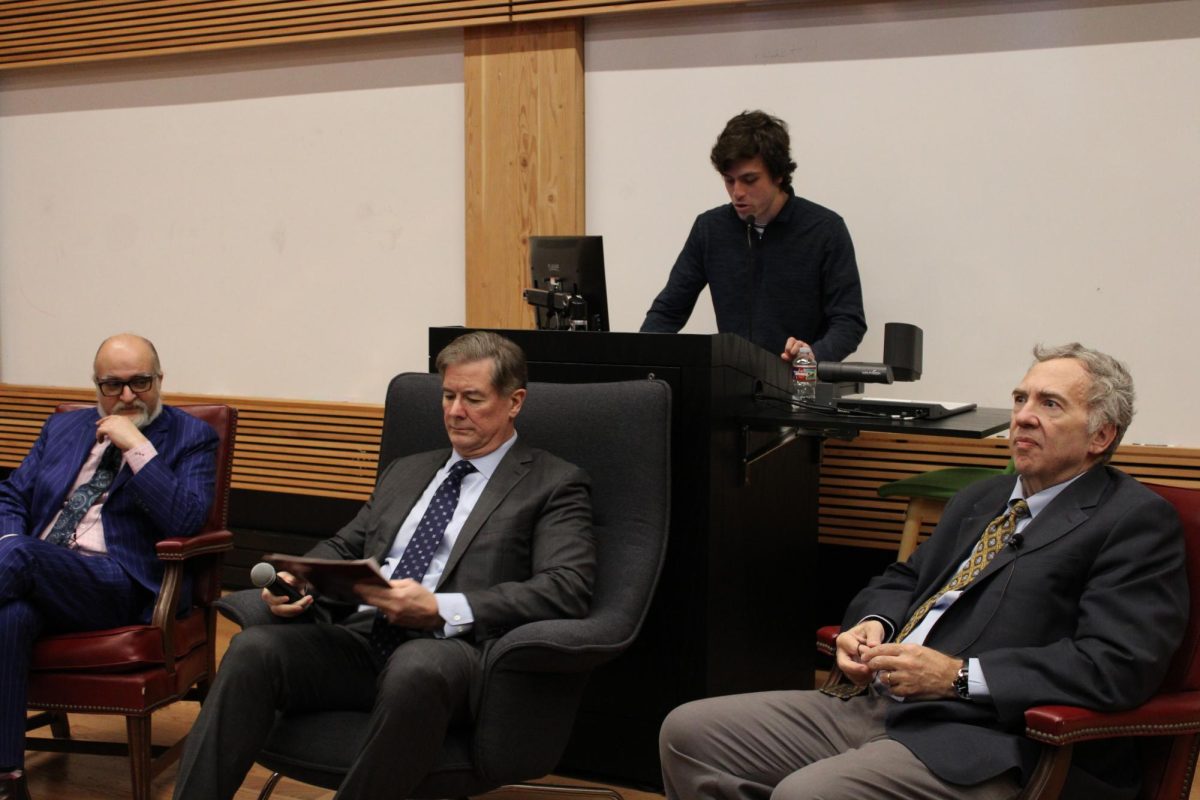Last Tuesday, Tigers For Liberty (TFL) set up a table to educate students about the atrocities committed in Maoist China. Students gave out fortune cookies with ominous fortunes, such as “You will cause innocent families to starve,” which was controversial. I respect and support TFL’s right to free speech and assume the best intentions for what they intended with the event. In no way do I mean to dismiss the real suffering that millions of Chinese people have faced as a direct result of Mao’s policies. Nevertheless, as Olivia Roybal and Ian Dill eloquently stated in last week’s guest column, “There are just too many meaningful distinctions between Marxist, Leninist, Maoist and capitalist thought for the simplistic view offered by ‘commie cookies’ and Red Scare propaganda to be satisfying for Trinity students.” However, I want to move beyond this event to talk about “great man theory” and why we should discuss socialism’s legacy in a more nuanced way.
The “great man theory” of history is, according to Wikipedia, “a 19th-century idea according to which history can be largely explained by the impact of great men, or heroes; highly influential individuals who … used their power in a way that had a decisive historical impact.” This theory still plays an important role in the U.S. educational system — up until high school, our historical education largely involves memorizing names of important historical figures like Marco Polo, Alexander the Great and Thomas Jefferson. The flaw in this theory is that it doesn’t account for ideologies and social movements that help us understand history. When TFL emphasized how Mao “single-handedly starved and impoverished his people,” students were left with little knowledge of the ideology that Mao espoused that lead to these events, and understanding ideologies is critical to understanding history.
As Roybal and Dill pointed out, Maoism arose to counter a complex legacy of colonialism and imperialism, and it failed because of similarly complex reasons. In the case of communist China, Mao’s utopian vision of production output under communism didn’t match with reality, and this intersected with environmental issues to cause a widespread famine. In addition, Mao and the state vacillated between authoritarian (“state capitalism”) and anarchist tendencies, so institutions and strict rules were instated just to be torn down, which was destructive and lead to capitalist reinstatement when Mao died. If we’re going to be talking about China’s legacy, this is the kind of educational content that Trinity students deserve: analysis that goes beyond “great man theory” and explains why this ideology failed and was harmful. People often discuss U.S. history complexly, but we don’t give that complexity to other countries’ histories.
Despite my disagreements with the presentation, I agree with TFL that we should be having political discussions about socialism. The guest column asked, “Who on campus is advocating Maoism? Has the secret Tiger Communist Party returned? Is there a resurgent global Maoist Movement that we have all been missing this whole time?” While Maoism is not coming back in its historical form (a very good thing), I think this question underestimates the numbers of U.S. citizens — particularly millennials — who are dissatisfied with capitalism.
Income disparities continue to grow in the U.S. each year, and numerous studies show how socioeconomic status is a primary determinant for physical and psychological health outcomes. If you’re invested in improving our mental health or in any social justice issues that intersect with classism, then this trend should concern you. Corporations peddling fossil fuels have created climate change that may cause humanitarian crises and state collapse within our lifetimes. Scientists say we need to curb climate change within 12 years to avoid devastating effects. Without a major change in the way our society is structured — or at least firm checks on what corporations can legally do — that won’t happen. These problems and our current system’s seeming inability to solve them have lead to more young people identifying as democratic socialists. Not everyone agrees that this is the solution for our problems, which is valid and should be explored! We need debate, and in this tumultuous time, people from all sides should be discussing history in multifaceted forms in order to chart our future paths.






